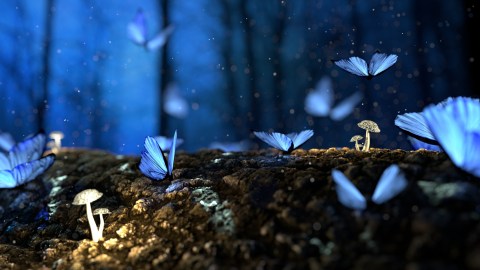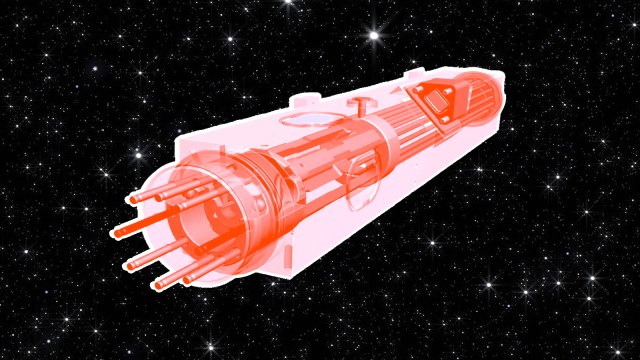5 books on the meaning of life

Pexels.com
- Some philosophers believe that we create our own meaning and it is for us to define.
- The meaning of life could be to live completely within the here and now.
- Even in the most dire and cruel of situations, humankind has found meaning in life.
What is the meaning of life? This question has been proposed in both profound and commonplace manners. It has been both sneered at and critically considered as well.
The search for the answer and the reason behind the question is open ended. Inherent within this line of questioning is the idea that there may be some significance or lack thereof to either the human condition or the universes’ purpose of existence.
The following list of books can help us better grasp the question.
Man’s Search For Meaning by Viktor E. Frankl
In Man’s Search For Meaning, Viktor Frankl chronicles his life in the Nazi concentration camps. The atrocities and horror of these death camps are some of the most gruesome and inhumane circumstances of the human condition in recent historical memory. As readers, we’re faced with wondering if there is any point grasping for meaning in such a senseless and cruel state of existence.
Yet, Frankl doesn’t dwell on any of the atrocities committed. Instead, he details the mindset of other prisoners at the time. As these prisoners faced their death and the destruction of their lives and loved ones, Frankl looks to map out his own experience in finding his reason and meaning of life through what he called “tragic-optimism.”
“It did not really matter what we expected from life, but rather what life expected from us. We needed to stop asking about the meaning of life, and instead to think of ourselves as those who were being questioned by life—daily and hourly. Our answer must consist, not in talk and meditation, but in right action and in right conduct. Life ultimately means taking the responsibility to find the right answer to its problems and to fulfill the tasks which it constantly sets for each individual.”
Siddhartha by Herman Hesse
Herman Hesse’s timeless novel has inspired and influenced generations of seekers and philosophers. It is a story of a wealthy Indian Brahmin who undergoes a number of cultural and spiritual paths in order to find enlightenment. Hesse combines many different world philosophies to come up with a unique vision of the spiritual journey. He draws from philosophies as diverse as Jungian psychology to Buddhism and Hinduism. Hesse seeks to surpass all ideology and transcend dogma so that his character can find true individualistic peace and bliss.
Siddhartha is both a journey for our main character and the reader themselves. It’s a coming-of-age novel that has continually attracted young seekers of knowledge and wisdom.
“Words do not express thoughts very well. they always become a little different immediately they are expressed, a little distorted, a little foolish. And yet it also pleases me and seems right that what is of value and wisdom to one man seems nonsense to another.”
The Myth of Sisyphus by Albert Camus
Albert Camus wrote some of the most thought-provoking and thrilling pieces of philosophical fiction in the 20th century. In TheMyth of Sisyphus, Camus labels the world of man as absurd because it will never be able to answer any question of its meaning for existence. In this story, he poses the universe as a silent spectator to the trials and suffering of man. Camus ponders the idea of suicide and whether or not that is the only logical answer to an indifferent and absurd world that will never answer.
Now in lieu of suicide, Camus instead meditates on the idea of revolt against an absurd world, by challenging it constantly to keep it anew of experience and devoid of ennui.
Later on the essay, Camus draws a parallel of the absurd with Sisyphus, who, according to ancient Greek myths, was sentenced to roll a rock to the top of a mountain forever, only to see it roll back down again once it reached the top. Camus says that Sisyphus is aware of this fate of eternal struggle that he will always be forced to endure, but he loses none of the passion in doing so.
“I leave Sisyphus at the foot of the mountain! One always finds one’s burden again. But Sisyphus teaches the higher fidelity that negates the gods and raises rocks. He too concludes that all is well. This universe henceforth without a master seems to him neither sterile nor futile. Each atom of that stone, each mineral flake of that night filled mountain, in itself forms a world. The struggle itself toward the heights is enough to fill a man’s heart. One must imagine Sisyphus happy.”
The Book by Alan Watts
Alan Watts placed humanity’s role in the universe as a central and unique expression of the entire sum of things. Watts gives us a new understanding of personal identity and the mystery of existence. Before creating The Book, Watts wondered what a book would be like that sought to answer all of the grand and great philosophical questions of life. What is this world? Why am I here? What’s the meaning of life? Along the way of Watt’s writing journey, emerged this gem.
With a beautiful synthesis of Eastern philosophy, Watts flows through paradox and logic in a humorous way that makes this book easy to read. Integrating modern western science and ancient Eastern maxims, this book stays relevant and refreshingly modern for a book written at the height of the counterculture mania of the 1960s.
“You have seen that the universe is at root a magical illusion and a fabulous game, and that there is no separate “you” to get something out of it, as if life were a bank to be robbed. The only real “you” is the one that comes and goes, manifests and withdraws itself eternally in and as every conscious being. For “you” is the universe looking at itself from billions of points of view, points that come and go so that the vision is forever new.”
Be Here Now by Ram Dass
This is the book that maps out the change and evolution of Dr. Richard Alpert into Ram Dass. Chronicling the three stages of his journey, we follow along the wild and spiritual adventure of both one man and an entire generation. Through the spiritual dealers of the East, gurus galore and the many divergent paths to enlightenment we delve into an amazing metamorphosis of man and culture.
The book covers the Harvard years of LSD and psilocybin experimentation and the dissatisfaction of intellectual life to his journey through India and to the time of his studying with Neem Karoli Baba who gave him the name Ram Dass.
Part biography and part cultural artifact, the book takes a psychedelic detour in the second section with psychedelic pictures and cartoonish imagery meant to represent and convey spiritual knowledge from seekers throughout the ages. In the third and final section of the book, Ram Dass gives us a manual of suggestions on how to live and to truly be here now.
“Early in the journey you wonder how long the journey will take and whether you will make it in this lifetime. Later you will see that where you are going is HERE and you will arrive NOW…so you stop asking.”





